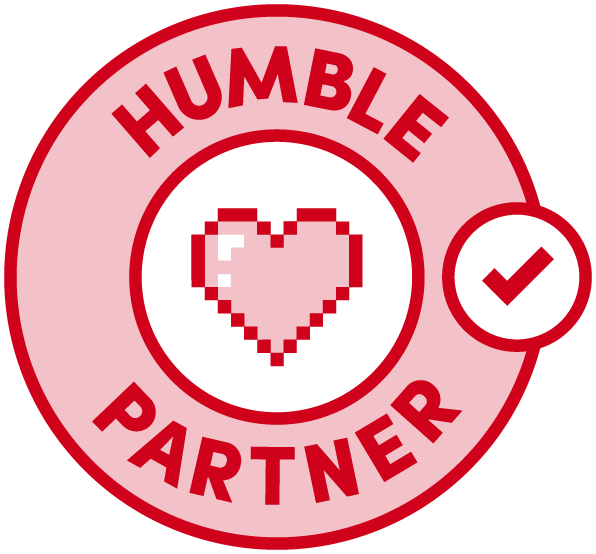Ghost Recon: Breakpoint Is Both Promising And Concerning
During a livestream today, Ubisoft revealed Ghost Recon: Breakpoint, a new open-world entry in the shooter franchise coming this fall.
Slated for an October 4 release date, Breakpoint follows in the vein of 2017’s Ghost Recon Wildlands, with a massive world, four-player co-op, and a mix of tactical firefights and vehicle combat. Despite the similarities, though, Breakpoint may be the franchise’s biggest departure yet. I attended a Ubisoft presentation last week, and got 20 minutes of hands-on time, and if one thing is clear, it’s this: Breakpoint is, for better and worse, an attempt to answer Wildlands’ critics.
Ubisoft Paris’ previous game brought the series to its first open-world in cartel-occupied Bolivia. In doing so, it drew flak for its problematic depiction of the South American country (more on this later). Breakpoint, on the other hand, is set in Auroa, a fictional Pacific archipelago with rocky coasts, dense forests, and even a volcano. In terms of ecosystems, think small-scale New Zealand.
Auroa serves as the headquarters of a corporation focused on AI research and advanced military technology. When the company goes radio silent, you’re sent in to investigate, only to discover that one of your former teammates has taken over the islands. If you’ve played Wildlands’ recent Operation Oracle DLC, you’ll recognize the rogue agent: Cole Walker, played by Jon Bernthal of Marvel and Netflix’s The Punisher fame.
![]()
![]()
![]()
![]()
![]()
![]()
![]()
![]()
![]()
![]()
![]()
![]()
Walker and his paramilitary force present a more formidable challenge than the cartel of Wildlands. In Breakpoint, you’re not the predators, but the prey. As Ubisoft told me, you’ll be continually hunted by Cole, his agents, and their newly acquired drone army. This sets the stage for a more stealth-oriented experience.
By crouching in ferns or going prone in tall grass, you can enter concealment a la modern Assassin’s Creed titles. You can even cover yourself in mud, should a nearby patrol emerge from the woods, or a group of drones pass overhead.
Based on my short demo, these mechanics allow for environmental interaction that Wildlands largely lacked. Ubisoft’s Bolivia was more than just window dressing, sure, but there was always a barrier between how we wanted to use the world and the limited ways we were actually able to use it. Breakpoint seems to recognize that. And if all goes well, it will weaken that barrier–if only just a little.
Supplementing this increased focus on tactics are character classes. Whereas Wildlands allowed for custom loadouts–you could complete most of the game with an assault rifle and grenade launcher attachment, if you chose to–Breakpoint divides perks, abilities, and weapons into specialized roles. At release, there will be four classes, with more to come in updates or expansions. What’s more, Breakpoint features shared progression across all of its modes: your character improvements will carry over from single-player to co-op, to the yet-to-be-revealed PvP mode.
For my demo, I chose the Panther, a class that emphasizes stealth and evasion. My team’s mission was to extract an injured civilian from an enemy outpost, shortly after detonating explosives we had previously planted. Following an enemy ambush, I activated the Panther’s instantaneous smokescreen ability, obscuring our retreat as the outpost went up in flames. All the while, my human teammate crouched in the woods in his ghillie suit and killed the enemy threats we couldn’t see.
Breakpoint is, for better and worse, an attempt to answer Wildlands’ critics
But the execution of this mission is only half of the story. Breakpoint puts as much emphasis–if not more–on planning and preparation. It does so with the use of bivouacs. For the less militarily inclined among us, these are essentially temporary, makeshift camps.
In Breakpoint, bivouacs are a chance to change your loadouts and pick your character class, yes, but also to check the weather forecast and choose the best time for your next mission. They’re also a place to clean and maintain your weapons. You can even zero your rifle for accuracy bonuses, or treat injuries that have been harming your max health. Oddly enough, using a bivouac reminds me of Dragon’s Dogma or State of Decay, games that encourage you to plan expeditions carefully before venturing into a dangerous world.
It’s worth noting that, owing to its focus on survival, Breakpoint’s single-player won’t include AI teammates this time around. Instead, you’ll have player-controlled drones that allow for the series’ signature Sync Shot ambushes. Ubisoft said it hopes removing AI teammates will contribute to a sense of isolation and (brace yourself) realism.
Herein lies my biggest concern with Ubisoft’s direction. In fact, it’s in the title itself: “Breakpoint.” That question of how far a combatant can go before giving up–of what needs to happen before they, in so many words, break down.
Three times throughout Ubisoft’s presentation, I heard the word “realism” touted as a focus of the narrative. Emil Daubon, Breakpoint’s writer and military advisor, and a 14-year-member of the U.S. Army’s Green Berets, promised that he and the studio are taking pains to paint trauma, brotherhood, and mental exhaustion as accurately as they can.
Still, only two years ago, Wildlands stumbled painfully in its narrative department. Its characters were flat, its dialogue cringey, and any attempts to reference the complicated problems the Ghosts faced during or after combat were the absolute low points in an otherwise thrilling experience. At best, Wildlands’ story felt obligatory. At worst, it was a detriment to the whole game.
None of this is to mention that video games, as a medium, have a terrible track record of depicting war, trauma, and mental illness. And Breakpoint is is not the first time a studio has hired a military advisor to ensure accuracy. Far from it. Call of Duty has long employed the knowledge of veterans and active military members, and the franchise is as close to campy action-blockbusters as games can be.
Lastly, as someone with numerous familial ties to combat veterans of the American military, I’m on the periphery of post-traumatic stress disorder every day. It’s complicated and it’s pervasive. It is a sensitive subject very much worth talking about, and I’m not looking to the creators of Ghost Recon: Wildlands to depict it faithfully.
But who knows? Maybe Ubisoft Paris will change my mind. Maybe it will stick the landing, and be the next AAA developer to do this subject matter justice. I’m not betting on it, but I’m holding out hope.
Almost everything else about Breakpoint’s gameplay tweaks and design decisions suggest the studio understands where Wildlands fell short. It’s focusing less on Grand Theft Auto mayhem, and more on survival in a dangerous world. And that’s encouraging. But if Ubisoft’s writers can’t find a way to reconcile their sensitive narrative material with the game unfolding around them, Breakpoint might be an extension of Wildlands. In other words: another gem that’s at its best when you ignore anything profound it’s trying to say.
from GameSpot – Game News https://www.gamespot.com/articles/ghost-recon-breakpoint-is-both-promising-and-conce/1100-6466739/





